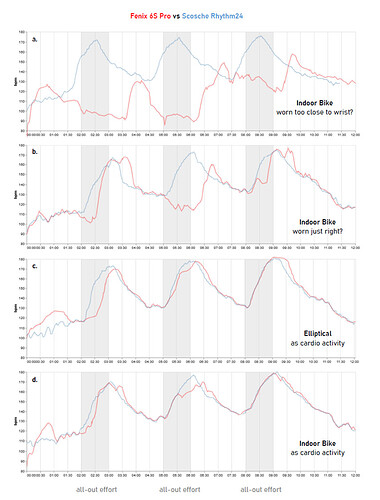For those interested in how activity tracking watches like Garmin perform against chest straps like Polar. You can see all the granular details at the link below. The article is written by two of our data scientists who performed the following experiment:
Two young, healthy male participants wore the Garmin Vivosmart 4 and Polar H10 for 24 hours on a regular workday. They manually recorded the time and duration of daily activities, including sleeping, (computer) typing, chatting, and walking.
The devices’ beat-to-beat HR data was uploaded to the cloud through the PhysioQ app and then downloaded from the labfront website.
We tested the accuracy of heart rate (HR) data obtained from the wrist band Garmin Vivosmart 4 by comparing the data with the Polar HR strap (H10, Polar Electro Oy). The Polar H10 is a handy chest-strap device that is widely considered the most accurate method for obtaining heart rate since it uses electrocardiographic (EKG) signals and not PPG-based signals. In other words, HR is determined by directly measuring the electrical activations of the heart and not indirectly through blood flow changes in the wrist.
To test the differences in the HR data from Vivosmart 4 and Polar H10 during different daily activities, we extracted three separate, but continuous 10-minute segments during each activity type from each participant.
The results showed that wrist watches are quite comparable to chest straps, but there are some limitations. From the study:
“As a general rule, based on this data, we would be comfortable using a Garmin wristband for measuring heart rate through the course of the day, although the PPG does tend to give noisier HR during more physically-active motions.”
All the findings here: Heart Rate Accuracy from Wearable Wristbands
